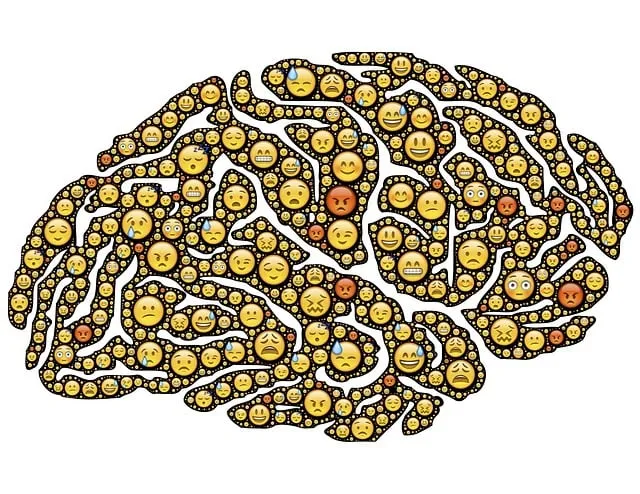Mental wellness apps are gaining popularity as convenient tools for managing emotional well-being, especially in areas with limited access to traditional services like those offered by Kaiser Permanente. These apps provide features such as mood tracking, mindfulness exercises, and interactive therapy sessions based on evidence-based practices. Success hinges on personalization, engagement through goals and progress tracking, integration of professional healthcare systems, and community-specific needs. By collaborating with healthcare providers like the Kaiser Permanente behavioral health phone number in Castle Rock and targeting local marketing efforts, these apps can offer tailored solutions for improved mental wellness.
In today’s digital age, mental wellness app development is transforming lives. With a growing need for accessible, personalized support, apps like Kaiser Permanente’s behavioral health phone number initiatives in Castle Rock are pioneering change. This article delves into the crucial elements of effective mental wellness apps, from understanding user needs to integrating with healthcare systems like Kaiser. Discover key features, engaging design strategies, and successful launch techniques tailored for communities like Castle Rock.
- Understanding the Growing Need for Mental Wellness Apps
- Key Features and Components of Effective Apps
- Designing User Experiences for Engagement and Therapeutic Value
- Integration with Healthcare Systems: The Role of Kaiser Permanente
- Development, Testing, and Launch Strategies for Success (with a focus on Castle Rock)
Understanding the Growing Need for Mental Wellness Apps

In today’s fast-paced world, mental wellness has emerged as a paramount concern, driving the demand for innovative solutions such as mental wellness apps. With increasing awareness about the impact of mental health on overall well-being, more individuals are seeking accessible and convenient ways to manage their emotional and psychological states. The need for these applications is further underscored by the recognition that traditional behavioral health services, like those offered by Kaiser Permanente, may not always be readily available or suitable for everyone, especially in areas such as Castle Rock.
Mental wellness apps offer a promising avenue to bridge this gap, providing tools for Mood Management and employing Stress Reduction Methods. Moreover, they contribute significantly to Mental Illness Stigma Reduction Efforts by normalizing conversations around mental health and promoting self-care. As the demand continues to grow, developers have an opportunity to create user-centric solutions that cater to diverse needs, ensuring a healthier and more supportive digital landscape for those seeking support for their mental wellness.
Key Features and Components of Effective Apps

Effective mental wellness apps are designed with a multitude of key features and components that cater to diverse user needs. One prominent example is the integration of Conflict Resolution Techniques, which equip users with valuable tools to navigate challenging situations. These apps often incorporate mindfulness exercises and educational content based on Mind Over Matter Principles, empowering individuals to take control of their mental health. By offering personalized tracking and progress reports, users can better understand and manage their emotional healing processes.
Additionally, these apps should facilitate secure communication channels, much like the Kaiser Permanente behavioral health phone number in Castle Rock, allowing users to connect with professionals for immediate support. Features such as mood journaling, meditation guides, and interactive therapy sessions contribute to an all-encompassing digital therapeutic experience. The seamless integration of these elements ensures that mental wellness apps not only assist in managing symptoms but also foster long-term emotional well-being.
Designing User Experiences for Engagement and Therapeutic Value

In designing user experiences for mental wellness apps, engagement and therapeutic value go hand in hand. The goal is to create an app that not only captivates users but also supports their journey towards improved mental health. Incorporating features like personalized goals, interactive exercises, and progress tracking can foster a sense of accomplishment and encourage consistent use. By integrating evidence-based practices such as mindfulness techniques or cognitive behavioral therapy tools, the app becomes a viable resource for managing stress, anxiety, and other common mental health concerns.
Imagine an app that adapts to each user’s unique needs, offering tailored content based on their progress and preferences. This level of customization can significantly enhance engagement, making the experience more meaningful and effective. For instance, a feature allowing users to connect with peers through forums or community outreach programs could foster a sense of belonging and resilience building. Additionally, healthcare provider cultural competency training integrated into the app can ensure diverse user groups receive culturally sensitive support, further enriching their therapeutic journey. Remember, the Kaiser Permanente behavioral health phone number in Castle Rock serves as a reminder that such apps complement professional services, offering accessible and readily available mental wellness solutions.
Integration with Healthcare Systems: The Role of Kaiser Permanente

The integration of mental wellness apps with established healthcare systems is a strategic move to enhance accessibility and continuity of care. Organizations like Kaiser Permanente play a pivotal role in this scenario. As one might look up Kaiser Permanente behavioral health phone number Castle Rock, they are likely to find a robust network of services that include digital tools for mental health support.
These apps, designed with the backing of healthcare giants such as Kaiser Permanente, can provide an array of functionalities including self-esteem improvement through interactive exercises, crisis intervention guidance during emergency situations, and seamless continuity between in-person and virtual therapy sessions. The Mental Wellness Podcast Series Production is another avenue where these integrated systems excel, offering evidence-based content that complements app-based interventions for a holistic mental wellness approach.
Development, Testing, and Launch Strategies for Success (with a focus on Castle Rock)

When developing a mental wellness app focused on Castle Rock, a strategic approach is essential to ensure success. Begin by understanding the unique needs and preferences of your target audience within this specific community. Collaborate with local healthcare providers, like Kaiser Permanente behavioral health phone number Castle Rock, to gather insights and align your app’s features with existing care protocols. This ensures cultural competency and effective support for users’ mental health journeys.
Testing is paramount to delivering a high-quality app. Implement robust beta testing involving diverse participants from Castle Rock to identify potential issues and gather user feedback. Focus on usability, functionality, and the overall user experience, ensuring your app promotes self-care routine development for better mental health. After addressing any bugs or improvements, plan a launch strategy that includes marketing campaigns tailored to reach locals in Castle Rock, highlighting features that cater to their specific needs, such as Mind Over Matter principles.
Mental wellness apps are becoming indispensable tools in the digital age, addressing the growing need for accessible and personalized support. By integrating key features such as mood tracking, mindfulness exercises, and therapeutic chat, these applications offer engaging user experiences that enhance mental well-being. The success of Castle Rock’s initiatives, paired with Kaiser Permanente’s behavioral health phone number, demonstrates the potential for these apps to revolutionize access to care. As we move forward, further integration with healthcare systems like Kaiser Permanente can ensure that mental wellness apps become a standard component of comprehensive patient care.






